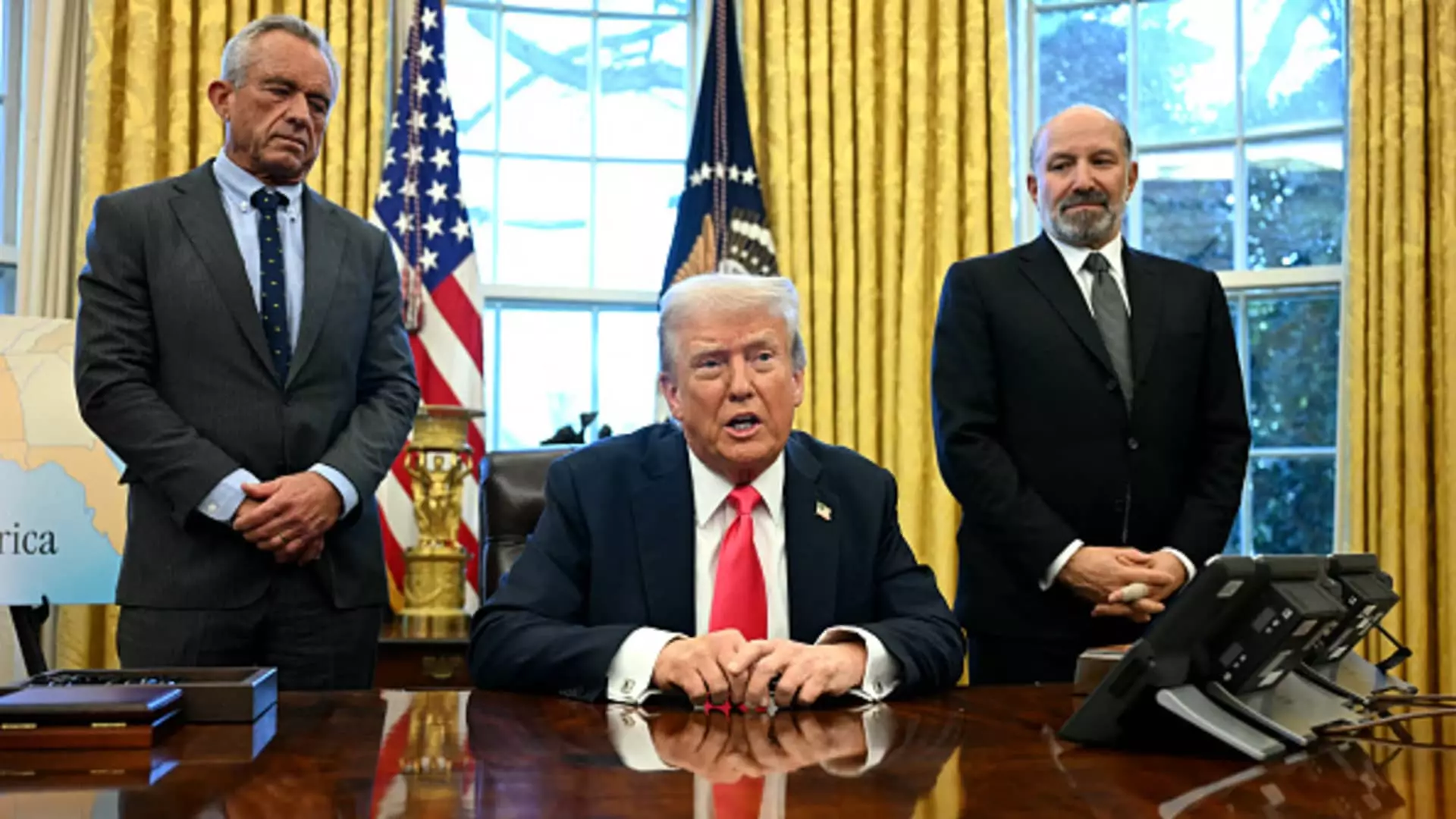In a climate where public health is constantly under siege, recent actions by Health and Human Services (HHS) Secretary Robert F. Kennedy Jr. have raised significant concerns among health experts and financial analysts alike. Kennedy, known for his controversial stance against vaccinations, is at the helm of an agency fundamentally tasked with safeguarding the health of Americans. The troubling implications of his leadership decisions have been underscored by the recent resignation of Peter Marks, the head of the FDA’s biologics division, who left in protest against Kennedy’s anti-vaccine rhetoric. The situation represents not merely a governance issue but a critical public health crisis, placing American lives at risk.
Disrespecting Science in Favor of Misinformation
The troubling premise of Kennedy’s leadership is not just rooted in his skepticism of vaccinations; it extends to a broader distrust of empirical science and proven healthcare practices. His downplaying of the measles, mumps, and rubella (MMR) vaccine and his promotion of unverified treatments to combat measles outbreaks raise alarms that cannot be ignored. Analysts from Cantor Fitzgerald explicitly call into question Kennedy’s qualifications, labeling him an “anti-vax, conspiracy theorist with inadequate training.” This characterization not only challenges Kennedy’s credentials but echoes a resounding need for evidence-based approaches within high-level health agencies.
The credibility of HHS, an agency pivotal to American public health, stands on shaky ground under Kennedy’s leadership. As public health experts highlight, such stances from their Secretary could sow further distrust in vaccines, leading to a downturn in routine immunizations and potentially catastrophic outbreaks of preventable diseases. The impact of these health policy decisions grows graver when considering the CDC’s misguided research efforts into discredited vaccine-autism connections led by a researcher notorious for spreading misinformation.
The Economic Ramifications of Anti-Vaccine Sentiments
The effects of Kennedy’s leadership are not isolated to public health; they ripple through the biotech industry as well. Sources report a notable sell-off in shares for vaccine manufacturers such as Moderna and Novavax following Marks’ resignation. This downturn points to burgeoning investor concerns regarding an environment increasingly hostile toward scientifically-backed health solutions. As experts from Cantor Fitzgerald noted, while stock performance may not appear the central issue, the implications of such a decline resonate on the broader societal stage—affecting research funding, development of new vaccines, and ultimately, public health initiatives.
The interplay between health policy and economic performance emphasizes the stakes involved. For instance, when vaccine stocks fall, observers may see not just an economic consequence but a potential deterioration of public trust in health agencies that are perceived to promote anti-science agendas. Such conditions create a feedback loop where diminished confidence in vaccines in turn impacts funding and interest in vaccine research, fostering an environment rife with misinformation and public safety risks.
A Call to Action: Protecting Public Health
The message is clear; the current administration must reassess Kennedy’s role at HHS. Health analysts are urging those in power to understand the implications of allowing an anti-vaccine narrative to influence public policy. The stakes are high. “How many more people need to die from this absurdity?” ask Cantor analysts—a hauntingly valid question that encapsulates the urgency of this moment.
In a world still battling against the remnants of the COVID-19 pandemic, the need for competent, science-driven leadership has never been more apparent. With the specter of disinformation threatening to undo decades of progress in public health, agencies like HHS require leaders who understand the nuances of health policies. The public deserves a Secretary who amplifies scientific rigor rather than undermines it.
Failure to act decisively against the spread of misinformation about vaccines and public health policies could have irreparable consequences. The time for complacency has passed; a vigorous recalibration toward evidence-based health leadership is vital for protecting the populace and advancing public health for future generations.

